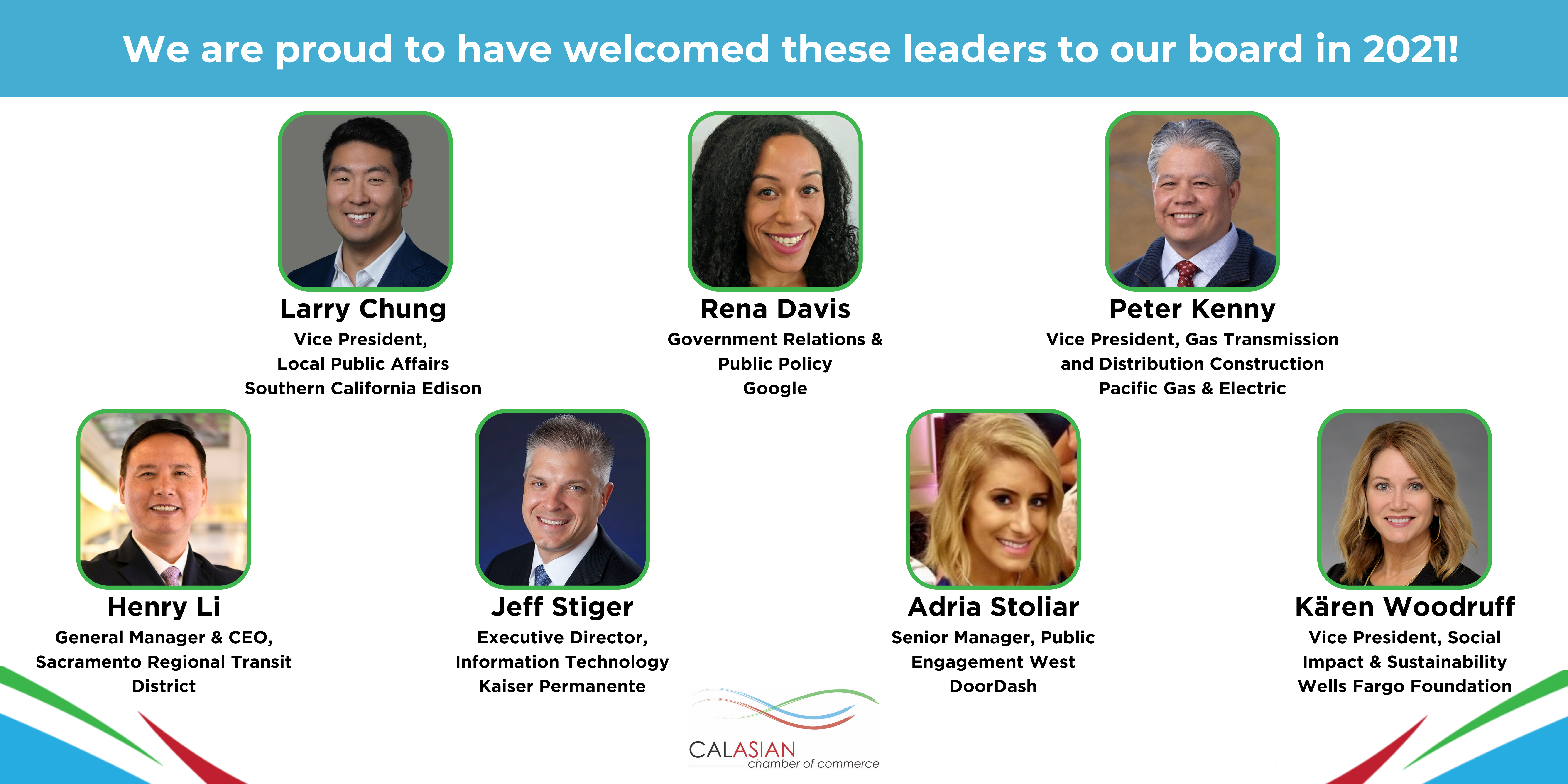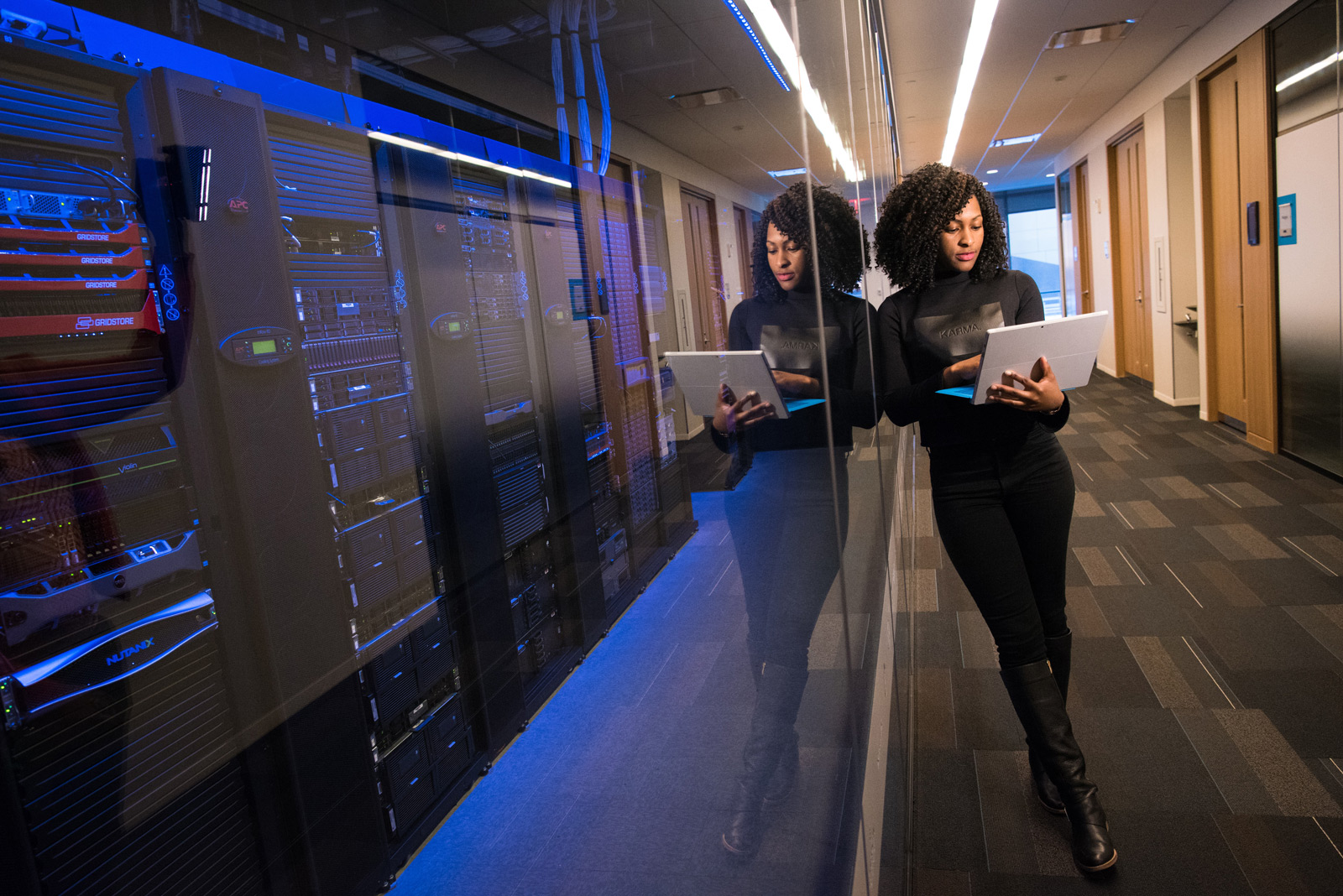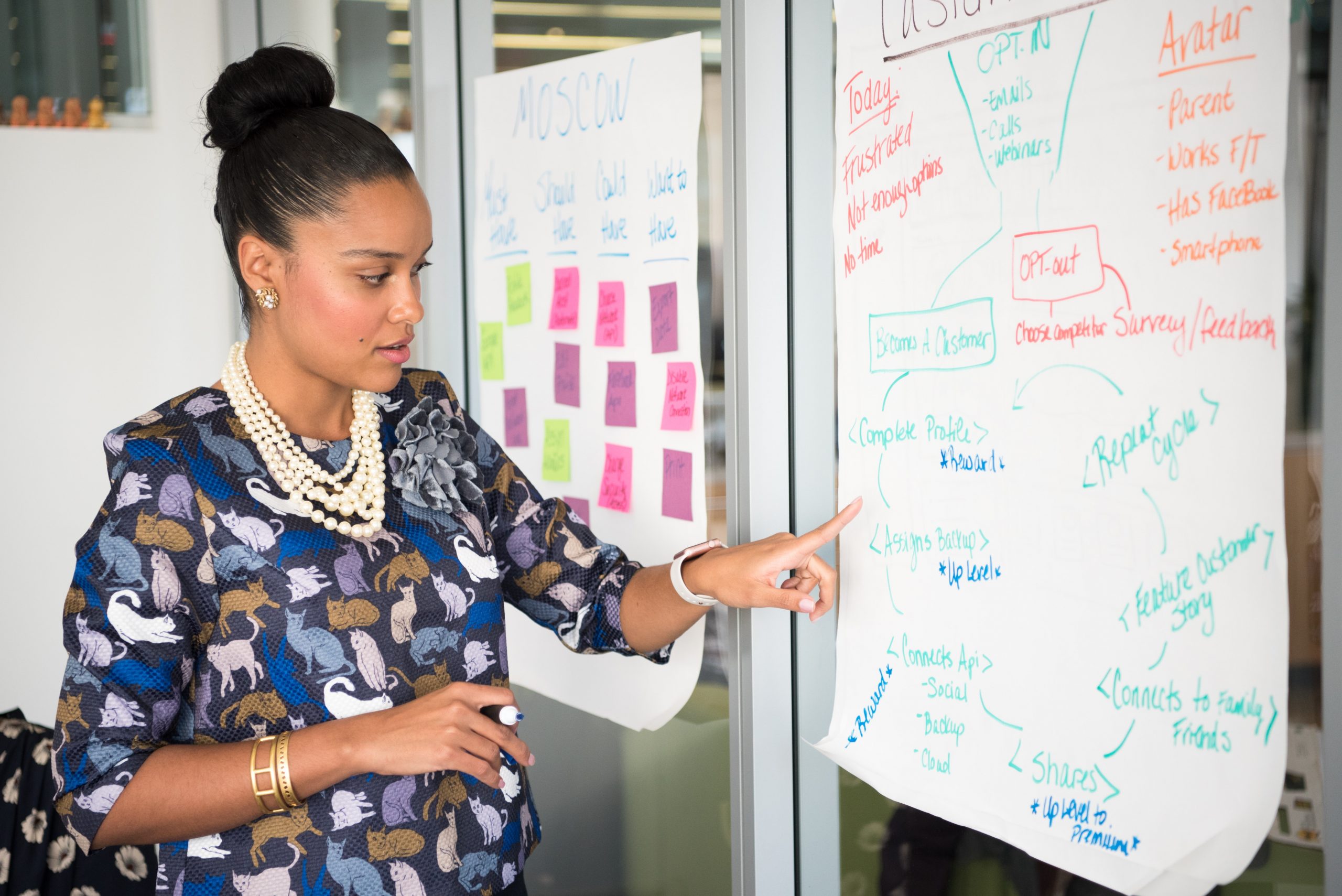Meet the Board Members We Welcomed in 2021
The CalAsian Chamber is committed to continually inviting new voices into our conversations, and we are excited to have introduced several new board members to our team in 2021. The addition of these corporate and community leaders to our board will complement the work we do in the new year, and we look forward to the new opportunities these connections will undoubtedly provide.
Each new board member has exhibited a remarkable dedication to small business, diversity and inclusion, and the continual growth of business communities. Their input and perspectives will be valued and applied in the Chamber’s future work to create an equitable and prosperous future for all small businesses.
Meet the board members we welcomed in 2021:
Larry Chung is the Vice President of Local Public Affairs at Southern California Edison, one of the nation’s largest electric utilities. Previously, he served as Director of Global External Affairs and Government Relations for the Walt Disney Company, and he currently serves on several local nonprofit boards.
Rena Davis specializes in Government Relations and Public Policy for Google. Prior to her role there, she was the Senior Public Policy Manager at Lyft. Rena’s past work spans from the United States Senate to nonprofit and academic public policy and much more.
Peter Kenny is Vice President of Gas Transmission and Distribution Construction at Pacific Gas & Electric (PG&E). He has more than 30 years of experience in the utility industry and has held multiple leadership roles throughout his career, transforming strategic utility programs and improving co-worker safety.
Henry Li is the CEO and General Manager of Sacramento Regional Transit District (SacRT), where both the organization and he personally have since received several awards. As a respected industry leader, Henry has earned a reputation as a national change agent, relentlessly pursuing excellence in transportation, even during a global pandemic.
Jeff Stiger is an Executive Director of Information Technology at Kaiser Permanente, where he directs a team of information officers who oversee technology at 21 hospitals and more than 245 medical offices across Kaiser Permanente’s Northern California footprint. He has been with Kaiser Permanente for more than 25 years. Jeff also previously served on the board of directors for the SacAsian Chamber of Commerce for eight years.
Adria Stoliar is the Senior Manager, Public Engagement-West at DoorDash and a Los Angeles native. Prior to her work at DoorDash, Adria was a Managing Director at DCI Group, LLC, a Washington D.C.-based public affairs firm.
Kären Woodruff is the Vice President of Social Impact and Sustainability for the Wells Fargo Foundation for Northern and Central California Region. She brings valued knowledge to the CalAsian board with more than 33 years of experience in business development, marketing, outreach, community development, philanthropy, employee engagement, and relationship building.
Aeolus Consultants Secures a Contract with Siemens Mobility, Inc through the CalAsian Chamber
“Your business is your relationships,” said Dan Welch, Principal Engineer at Aeolus Consultants. Find out how we helped foster those relationships to become business opportunities.
 CASE STUDY:
CASE STUDY:
The Business:
Dan Welch founded Aeolus Consultants – an air quality permitting and compliance consulting company – when he decided to leave his former job and take the plunge on his own.
Welch has been in the environmental field for his entire career and was focusing on his business development efforts when he was first introduced to the Chamber.
The Challenge:
As a small proprietor and a self-described introvert, Welch was looking for structure that would help get his small business off the ground. He needed strategic introductions that could help him build the necessary connections for successful business development.
CalAsian’s Support:
Welch attended a California Department of General Services’ procurement event where he met staff from CalAsian who personally connected with Welch and encouraged his involvement in the Chamber’s Business Development Program (BDP), which was designed to help small businesses market themselves to state, federal, and private entities.
Welch said, “Instead of just exchanging brochures or contact information, he took the extra step of inviting me to join that program.”
Welch ended up attending the last nine sessions of the 10-week program after that, learning and networking alongside fellow small business owners. He continued to participate in events and eventually connected with someone at Siemens Mobility, a leader in transport solutions for more than 160 years, with whom he originally met at one of the BDP sessions. That connection resulted in an introduction to the plant Director of Environmental, Health, and Safety (EHS), which subsequently blossomed into site visits to the plant, proposals for three separate EHS projects, and now an essential partnership between Siemens Mobility and Aeolus Consultants.
Value Derived:
Due to the connections CalAsian’s Business Development Program helped him foster, Welch’s work with Siemens Mobility led to an introduction to staff at a second Siemens’ facility and additional project work. He now has six clients, including PG&E and the California Department of Justice. Welch said, “As a small proprietor, it’s just me. So having earned purchase orders totaling $280,000 in a little under two years is amazing.”
“As a small business owner, I don’t have the overhead that a large firm does. I got involved with the Chamber at a time where I was focusing my efforts on my business development, and the Business Development Program was helpful in providing structure and connections for me. Siemens Mobility has come to really value me as an essential part of their EHS team. I am grateful for the help the Chamber provided me – some of the structure, and more of the motivation than anything else, as well as the networking opportunities. It’s been really beneficial for me.” - Dan Welch, Owner/Principal Engineer at Aeolus Consultants.
Connect with Aeolus Consultants:
Email: dan@aeolus-aq.com
Phone: (916) 204-7133
Businesswomen of Color Find Promise in the Pandemic at the Minority Women Lead Kickoff Event
https://youtu.be/kv5bQ60nvT0
Over the last year and half, leaders on mainstreet and in corporate boardrooms have had to re-think their plans, pivoting to survive and thrive amid new challenges. The adversity millions experienced has created the need to think about new possibilities. During this time, the leadership of women of color across industries has been marked by the creative and innovative ideas they have brought to the table and utilized to create growth in their business and for their business partners.
We recently hosted our first virtual panel discussion in the Built Out of the Pandemic three-part Minority Women Lead series. The panel showcased women of color talking about the pandemic’s effects on women-and-minority-owned businesses.

This panel discussion was kicked off by keynote speaker Thear Suzuki, Global Client Service Partner, Ernst & Young, LLP and Moderated by Gayatri Shenai, Partner at New York Mckinsey & Company. Panelists included Adrienne Borlongan, Creative Partner & Co-Founder at Wanderlust Creamery; Co-Founder & Lead Food Scientist at Droplet; Jennifer Garcia, COO at Latino Business Action Network and Tasia Hawkins, Social Impact Program Lead at DoorDash. From varying industries and backgrounds, each panelist shared her unique perspective during a dynamic, informative dialogue for the more than 200 minority women business owners, community, political, and corporate leaders who joined the virtual panel discussion. While their experiences and responses to how they navigate the pandemic may differ, there were common threads interwoven throughout the discussion, including the need for a digital presence, pivoting business models and cultivating creativity, access to capital, especially for minority-owned businesses, and the importance of empowering local economies and the women-owned/BIPOC-owned businesses that power them.
While the last 18 months have been extremely challenging, each of the panelists also spoke about how this time allowed them to uncover opportunities in their personal and professional life. Jennifer, a mother of three, told her story of how she was appointed interim CEO and why the pandemic reminded her of the importance of her faith and refined what she worked on based on her interests and passions. Working with Latino entrepreneurs, she shared with attendees how important it is for entrepreneurs to develop a professional network to share ideas with and collaborate.
Adrienne, also a mother of three, highlighted how the pandemic gave her the time she needed to identify the holes that needed to be filled in her personal and professional life. When her four brick and mortar stores had to close, she said she used the scrappiness she developed as a daughter of immigrants and found the solution: opening her ecommerce store to sell Wanderlust ice cream online. Today, approximately 50 percent of Wanderlust sales are from their online store.
A leader in the social impact space and committed to racial justice, Tasia shared how the pandemic provided her the opportunity to show up for DoorDash’s restaurant partners and help small businesses redefine their business models as their dining rooms were closed. She also highlighted how DoorDash’s social impact team rapidly developed DoorDash’s Main Street Accelerator program to help small restaurants faced with shutdowns and calamity. Under Tasia’s leadership, the program provided grants to restaurants across the country and mentorship for restaurant owners with industry leaders, where they discussed everything from effective marketing to how to grow their business. She stressed how important coaching and mentoring is to help guide business owners through challenging times and growth.
Check out the full panel discussion here and sign up for future panel discussions.
Presenting sponsors Amazon Studios, Southwest Airlines, Wells Fargo and Verizon helped make the series possible. In addition, supported by silver partners, BNY Mellon, Coca-Cola, Comcast NBC Universal, DoorDash, Ernst & Young, LLP, Siemens Mobility, Inc., and Toyota, Minority Women Lead is a month-long series featuring inspiring women of color reflecting on how they have emerged from the pandemic and will continue to innovate in male-dominated fields.
Minority Women LEAD | The Reality of the Tech Industry: Broken Rungs but Determined Women
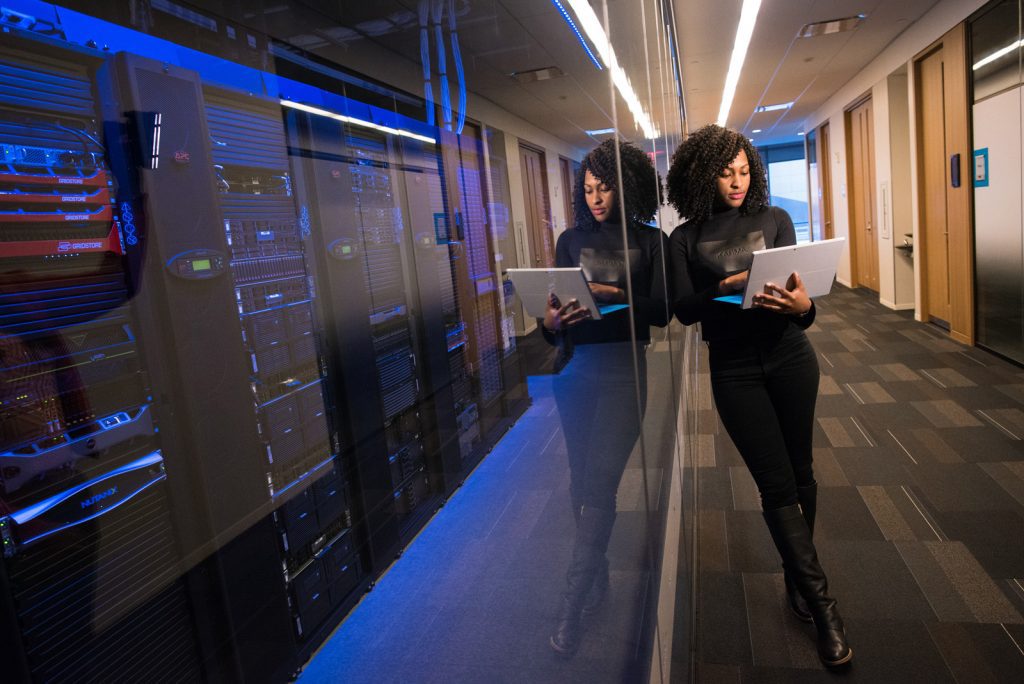
The tech industry employed about 7.6 million workers as of 2019, but in the five largest tech companies in the U.S., only 29-45% of those employees were women, and only 26-34% of those were leadership roles.
This is partly due to the “broken rung” on the workplace ladder, which prevents women from moving up into manager-level positions, and women of color are particularly affected. TrustRadius’ 2021 Women in Tech Report found that “37% of women of color in tech feel that racial bias is a barrier to promotion.” Additionally, women of color reported feeling less confident than white women about the possibility of being promoted.
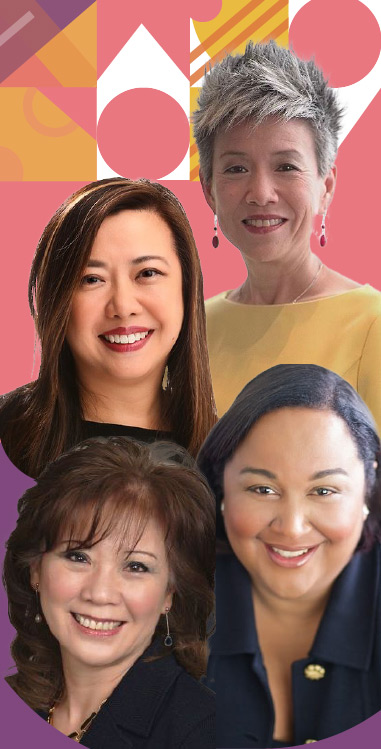 To address these issues and begin to repair the broken rung, the California Asian Pacific Chamber of Commerce will host the second event in the Minority Women Lead series, “Repairing the Rung: Women Climbing the Tech Ladder.” This virtual conversation, held on August 18 from 10:00-11:30 a.m. PST, will feature a panel of powerful women who forged successful paths in the tech industry. Speakers include Susan Jin Davis, Chief Sustainability Officer at Comcast Corporation; Grace Lee, President and CEO of Ashford Connex; Tanya Lombard, Vice President of External Affairs - Head of Multicultural Engagement and Strategic Alliances at AT&T; and Caren Khoo, Vice President and Deputy General Counsel at Verizon who are all incredibly successful women in tech who can speak into the industry’s issues and possible solutions.
To address these issues and begin to repair the broken rung, the California Asian Pacific Chamber of Commerce will host the second event in the Minority Women Lead series, “Repairing the Rung: Women Climbing the Tech Ladder.” This virtual conversation, held on August 18 from 10:00-11:30 a.m. PST, will feature a panel of powerful women who forged successful paths in the tech industry. Speakers include Susan Jin Davis, Chief Sustainability Officer at Comcast Corporation; Grace Lee, President and CEO of Ashford Connex; Tanya Lombard, Vice President of External Affairs - Head of Multicultural Engagement and Strategic Alliances at AT&T; and Caren Khoo, Vice President and Deputy General Counsel at Verizon who are all incredibly successful women in tech who can speak into the industry’s issues and possible solutions.
Although this gap in gender and minority employment in tech has always been present, when coupled with the pandemic’s effects on the job market, women of color were even more disproportionately affected. McKinsey & Company found that women of color were more likely to have been laid off during COVID-19, and a reported two million women are now considering leaving the workforce as a result.
Data projects that jobs in the computer and information technology occupations alone will grow 11% between 2019-2029, which is much faster than the average for all other occupations. However, only 18% of computer science bachelor’s degrees in the U.S. are held by women. With job opportunities in the tech industry expected to rise even after the pandemic, women in the workforce are needed now more than ever.
The statistics show that women, particularly women of color, are scarce in the tech workforce, and opportunities for promotion seem even more limited. While the numbers tell us what needs to change, conversations addressing and examining the issue are the first step toward that. “Repairing the Rung: Women Climbing the Tech Ladder” is an opportunity to confer with successful women in tech for insight into how we can repair the rung and support women in the upward climb.
Share your own insights and questions as part of this conversation and register for the "Repairing the Rung: Women Climbing the Tech Ladder" event here. See the full line-up of events here.
Minority Women LEAD | Find Out How Your Business Can Bounce Back Post-Pandemic
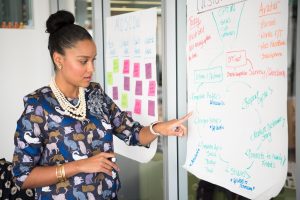
Women of color started businesses faster than any other group in 2019. According to the annual State of Women-Owned Businesses Report, minority women-owned businesses generated $422.5 billion in revenue for the U.S. economy. However, like all industries across the globe, business came to an abrupt halt when the coronavirus pandemic presented substantial challenges. Despite the obstacles, many small businesses displayed remarkable resilience throughout the pandemic and successfully adapted.
Although California Governor Gavin Newsom ended capacity restrictions for businesses on June 15, many small business owners are still struggling to recover from the last year. Statistics show that while female entrepreneurs made up 89% of the new businesses opened in 2019, the economic effects of the pandemic left a lasting impact.
Historically, funding opportunities for businesses in the U.S. were blocked for people of color, and this lack of access only exacerbated the difficulties presented by COVID-19. Minority women account for 50% of all women-owned businesses in the U.S., and there are roughly 6.4 million women-of-color-owned businesses nationally. In a Special Report on Women-Owned Small Businesses During COVID-19, the U.S. Chamber of Commerce found that women-owned small businesses were more severely impacted by the coronavirus than male-owned small businesses, and they are less likely to anticipate a successful recovery from the pandemic’s effects. Despite this, some women business owners are defying the data and finding unique ways to adapt.
 Co-founder and lead food scientist at Droplet, Adrienne Borlongan, persevered through the pandemic despite apparent copycats and competition with corporations. Borlongan is also a co-founder of Wanderlust Creamery, which moved to nationwide shipping to meet demand during lockdowns. Another businesswoman of color, the interim CEO of Latino Business Action Network, Jennifer Garcia, collaborated with Stanford University to research how COVID-19 affected entrepreneurs. Research on the impacts of the pandemic has also been conducted by organizations like McKinsey & Company, who work with women like Gayatri Shenai, this panel's moderator. Shenai is partner at the organization and has been closely involved in McKinsey’s decade-long research on women’s advancement. Larger businesses were also forced to adjust to the pandemic, and Social Impact Program Manager at DoorDash, Tasia Hawkins, contributes to DoorDash’s entrepreneurship and access initiatives, including the new Main Street Strong Accelerator program. The program and its $2 million fund centers on supporting female, immigrant, and BIPOC-owned restaurants in cities across the U.S. during post-pandemic recovery.
Co-founder and lead food scientist at Droplet, Adrienne Borlongan, persevered through the pandemic despite apparent copycats and competition with corporations. Borlongan is also a co-founder of Wanderlust Creamery, which moved to nationwide shipping to meet demand during lockdowns. Another businesswoman of color, the interim CEO of Latino Business Action Network, Jennifer Garcia, collaborated with Stanford University to research how COVID-19 affected entrepreneurs. Research on the impacts of the pandemic has also been conducted by organizations like McKinsey & Company, who work with women like Gayatri Shenai, this panel's moderator. Shenai is partner at the organization and has been closely involved in McKinsey’s decade-long research on women’s advancement. Larger businesses were also forced to adjust to the pandemic, and Social Impact Program Manager at DoorDash, Tasia Hawkins, contributes to DoorDash’s entrepreneurship and access initiatives, including the new Main Street Strong Accelerator program. The program and its $2 million fund centers on supporting female, immigrant, and BIPOC-owned restaurants in cities across the U.S. during post-pandemic recovery.
On Wednesday, August 11 from 10:00-11:30 a.m. PST, join Borlongan, Garcia, Hawkins, Shenai, and several other business leaders in a virtual conversation at the first Minority Women LEAD event. This conversation, “Built Out of the Pandemic,” is the first in a series of three events featuring inspirational businesswomen of color.
These panel speakers and more will discuss how they adapted, what resources helped them push through, and what they’re doing to ensure a sustainable recovery. Their stories of resilience, adaptability, and growth can provide business owners with models of reconstruction following the economic hardship of the past year.
Join the conversation with these businesswomen of color as they share how they are using the pandemic’s challenges as a foundation to build again. Register for our Minority Women LEAD Kick-Off Event, featuring the “Built Out of the Pandemic” panel here, and let’s rebuild together.
See the full line-up of events here.

